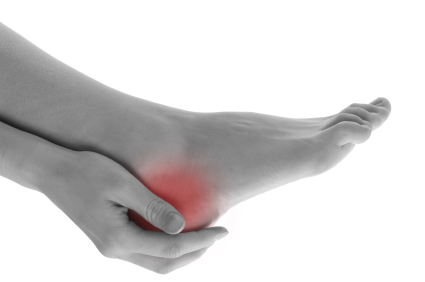Who works harder than nurses? OK, no need to start a fight here, but do I have a point?! Walking around a LOT, standing for hours, hard concrete floors, lifting and manual handling. And not always in the best shoes... because they're usually the ugly shoes! One thing is for sure, at Pioneer Podiatry, we see a LOT of nurses.
Not surprisingly, there have been quite a few studies into the kind of injuries that nurses get. And guess what? Nurses have some of the highest rates of musculoskeletal injuries amongst all the medical and health professions. In some studies, up to 85% of nurses reported a musculoskeletal injury, with foot and ankle pain coming in close second behind lower back pain, and just in front of shoulder pain.
Another review of over 35 studies into lower limb injuries in nurses showed that foot and leg pain is a major cause of sick leave amongst nurses.
So how do we help nurses?
Firstly, footwear prescription is so important to get right. Just like writing the right script for the right antibiotic for the right bacterial infection is critical to getting a good clinical result, so is getting the right footwear script with the right design and technology elements to prevent or help to cure a musculoskeletal injury. Too much, or not enough, support or cushioning can make a small problem worse. Other things such as midsole density and heel pitch make a huge difference. And, perhaps the most important factor of all... style! If you need a more dressier footwear style, you don't want to have to be stuck with the ugly shoes. The honest truth is... you might buy them, but you're very unlikely to wear them.
We take all these factors into account when prescribing shoes; support, design function, and fashion. If you get one element wrong, it's not going to help. We are certified shoe nerds, and we pretty much know every shoes out there. If we can't direct you to where to get the shoe you need, we can source and fit it directly for you.
The second way we help nurses is by using one of the super skills of our profession... custom orthotics. An orthotic is something you put in a shoe to change the way the foot works, usually to reduce the tissue stress on an injured area, or to improve biomechanical function. A custom orthotic is an orthotic that is made from a 3 dimensional impression, mould, or optical scan of your foot. Custom orthotics are very effective at treating many injuries, and they are many nurses walking around Mackay with our orthotics in their shoes. It has enabled them to walk and work without the end of day pain they previously experienced. And that is good news, not just for those nurses, but also for the patients they treat! I mean, is it easier or harder to do your job with a sore foot? You know what I'm saying?
If you know a nurse with a sore foot, you should share this blog post. They will thank you for it!
Frequency and risk factors of musculoskeletal pain in nurses at a tertiary centre in Jeddah, Saudi Arabia: a cross sectional study
Suzan Mansour Attar
BMC Research Notes 2014, 7:61 doi:10.1186/1756-0500-7-61
Lower extremity musculoskeletal disorders in nurses: A narrative literature review.
Stolt M, Suhonen R, Virolainen P, Leino-Kilpi H.
Scand J Public Health. 2015 Sep 9. pii: 1403494815602989


